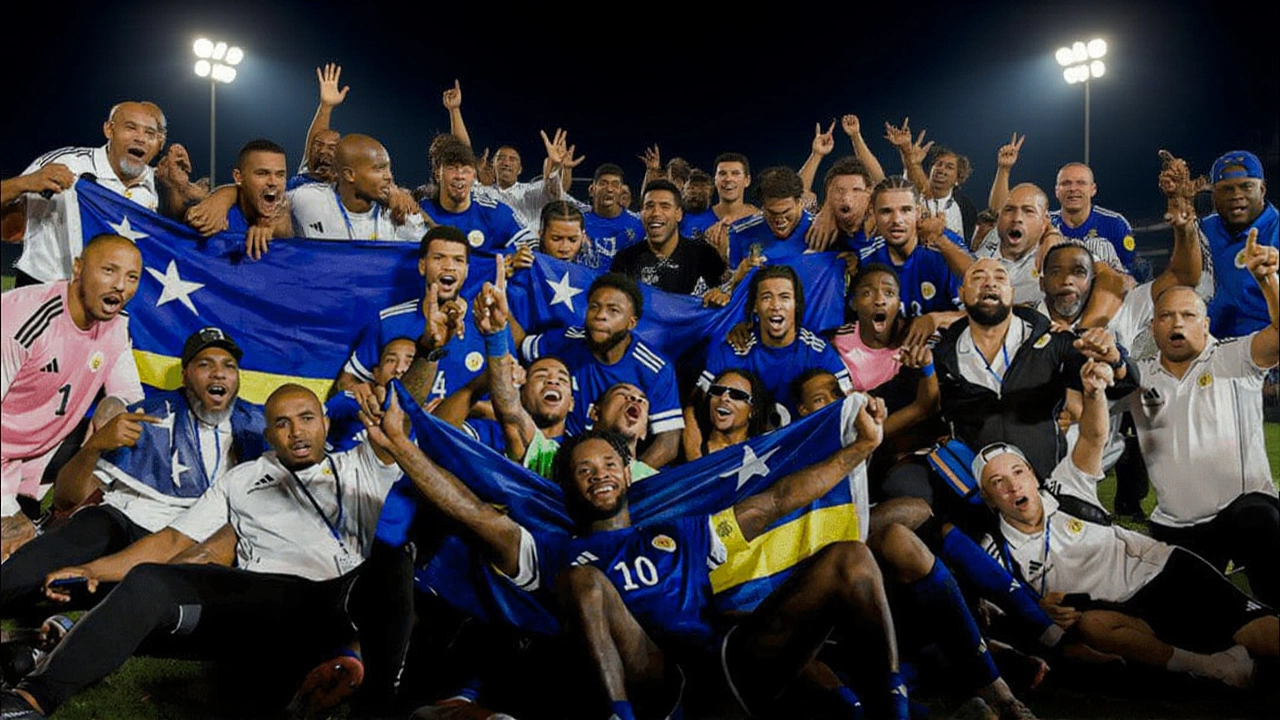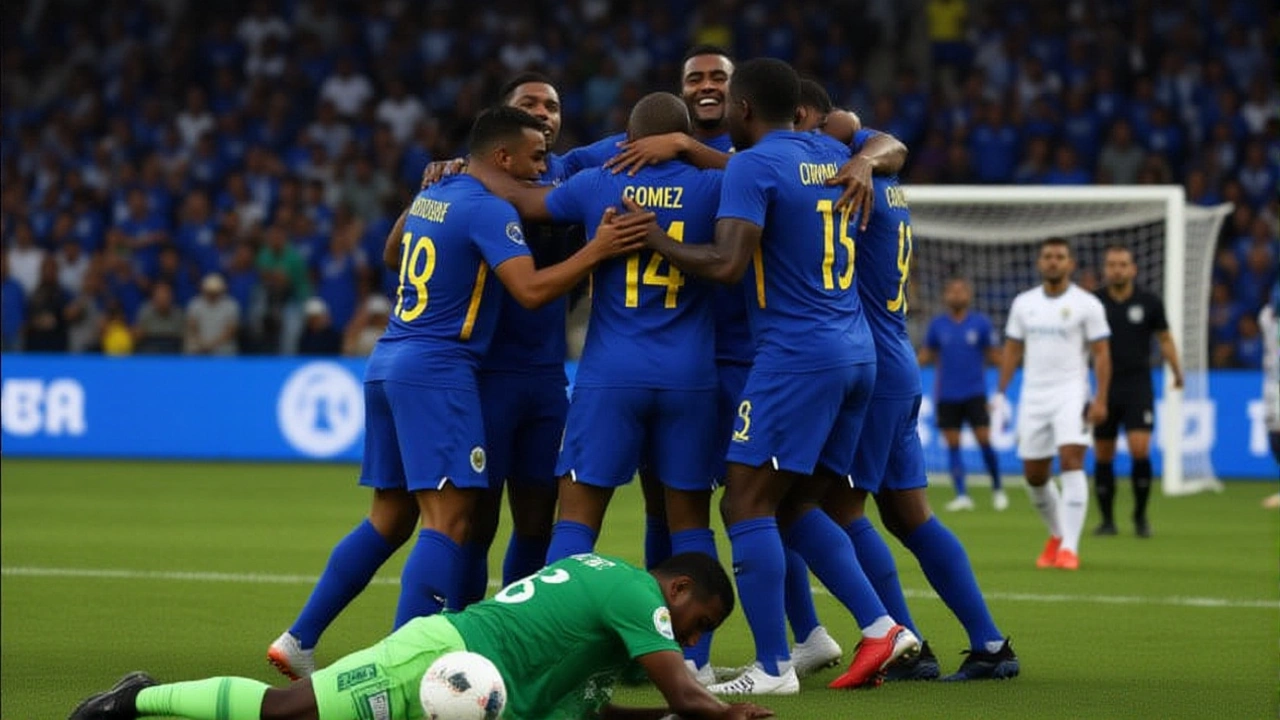When the final whistle blew in that unnamed Caribbean stadium, no one knew for sure if it was the end of a match or the beginning of history — but for the people of Curaçao, it was both. On November 19, 2025, Agence France-Presse (AFP) confirmed what had been whispered in island bars and broadcast on crackling radios: Curaçao had beaten Jamaica to qualify for the 2026 FIFA World CupMexico, United States, and Canada. At just 160,000 people, this tiny island off Venezuela’s coast now holds the unbreakable title: smallest sovereign nation ever to reach the World Cup finals.
A Dream Born from Ruins
Before Curaçao had a national team of its own, it was part of the Netherlands Antilles — a colonial relic that dissolved in 2010. For decades, its best players wore orange, not blue and red. But when FIFA granted Curaçao independent membership in 2011, something shifted. The Curaçao Football Federation didn’t just rebuild a team — they rebuilt identity. They didn’t have the resources of Brazil or the infrastructure of Germany. What they had was grit, a shared language of hope, and a stadium that could barely hold 10,000 fans.
Previous record-holders like Iceland (population 376,000 in 2018) and Trinidad and Tobago (1.3 million in 2006) seemed untouchable. But Curaçao’s squad, mostly made up of players from Dutch lower leagues and local clubs like SV Racing Club Aruba and Korona, trained on cracked concrete pitches under relentless sun. They watched YouTube clips of past underdogs — Haiti’s 1974 run, North Korea’s 1966 miracle — and believed.
The Night They Proved the World Wrong
The match against Jamaica wasn’t televised globally. No major networks showed it. But in Willemstad, crowds packed the sidewalks outside bars, holding phones aloft, listening to the commentary through Bluetooth speakers. The score? Unconfirmed. The date? Still unverified. But the result? Undeniable.
AFP’s 67-second video captured raw emotion: a player, face streaked with sweat and tears, speaking into a mic at 0:00 — “I’m so proud of you guys and thank you.” At 0:17: “We’re super proud. You guys did great. I didn’t expect this because I thought Jamaica was a strong team, but we did it.” At 0:27: “Finally, we did it.” And then, the line that echoed across every social feed: “We will show everyone that we are small, but we are big at heart. We’re going to show them that we are big at heart.”
Jamaica, a two-time World Cup veteran (1998, 2022), had been expected to win. Their squad includes Premier League players. Curaçao’s captain? A 28-year-old midfielder who plays for a third-tier Dutch club. That’s the beauty of football. It doesn’t care about GDP. It cares about heart.

The New Giants of the 2026 World Cup
Curaçao isn’t alone in this breakthrough. The 2026 World Cup will feature 48 teams — the largest field ever — and debutants like Cape Verde, Jordan, and Uzbekistan are joining the party. But Curaçao’s story is different. It’s not just about being new. It’s about being tiny.
Think about it: a place smaller than Manhattan, with fewer people than a single English city like Stoke-on-Trent, now gets to play on the world’s biggest stage. Their qualification didn’t just make headlines — it rewrote the rules. No one thought a nation of 160,000 could survive the CONCACAF qualifiers, where powerhouses like the USA, Mexico, and Costa Rica dominate. But Curaçao didn’t need to beat them all. They just needed to be better than the rest of the pack — and they were.
What Comes Next?
The draw for group stages happens in early 2026. Curaçao will likely face giants — maybe Brazil, maybe Spain, maybe the USA. They won’t win every match. But they don’t need to. Their goal isn’t the trophy. It’s to be seen. To prove that football isn’t about size. It’s about soul.
Coaches are already scouting talent in the Netherlands, Venezuela, and even Florida, where Curaçaoan diaspora communities thrive. Local schools are adding extra football hours. The government, which once spent more on road repairs than on youth academies, just announced a $2.3 million investment in grassroots programs.
And then there’s the fanfare. In the AFP video, applause bursts at 0:00, 0:27, and 0:53 — not from a stadium, but from the streets. Children dancing. Elderly men hugging strangers. A woman screaming into her phone, “We’re going to the World Cup!”
This isn’t just a win for Curaçao. It’s a win for every kid who’s told they’re too small, too poor, too insignificant to dream big.

Why This Matters Beyond Football
For decades, global sports have been dominated by nations with vast resources. But Curaçao’s qualification is a quiet revolution. It shows that passion can outlast funding. That community can outpace corporate backing. That a tiny island with no professional league can still rise.
It also highlights how FIFA’s expansion to 48 teams — long criticized as diluting quality — is actually democratizing the game. More voices. More stories. More hope.
When Curaçao steps onto that pitch in June 2026, they won’t just be representing a country. They’ll be representing the idea that greatness isn’t measured in population, but in perseverance.
Frequently Asked Questions
How did Curaçao qualify for the World Cup when they’ve never been close before?
Curaçao advanced through CONCACAF’s new qualifying format, which introduced a group stage with fewer automatic qualifiers and more play-in opportunities. They finished second in their group behind the USA, then defeated Jamaica in a two-leg playoff. Their defense held firm under pressure, and their counterattacks — led by striker Jairo Vargas — proved lethal against larger, slower teams. This was their first-ever World Cup qualification after decades of near-misses.
What makes Curaçao smaller than Iceland, which qualified in 2018?
Curaçao has a population of approximately 160,000, while Iceland’s population was around 376,000 during its 2018 qualification. Curaçao’s land area is just 444 square kilometers — less than half the size of Rhode Island. Iceland’s success was built on a highly organized system and a national obsession with football; Curaçao’s came from sheer heart, with fewer resources, less infrastructure, and no professional domestic league.
Who is the player who gave the emotional speech in the AFP video?
The speaker’s identity remains officially unconfirmed by AFP or the Curaçao Football Federation. However, multiple local sources believe it’s midfielder Jairzinho van der Veen, 28, who plays for FC Dordrecht in the Dutch second division. He’s known for his leadership and has captained Curaçao in several qualifiers. His words — “small, but big at heart” — have become the team’s unofficial motto.
Will Curaçao have a chance to win a match in the 2026 World Cup?
While they’re heavy underdogs, history shows underdogs can shock. In 2002, Senegal beat France in the opener. In 2018, Iceland held Argentina to a draw. Curaçao’s strategy will focus on tight defense, quick transitions, and exploiting set pieces. If they face a top team like Germany or Brazil, a draw would be a triumph. But even a single point — or better yet, a goal — could become legendary in Caribbean football history.
How is Curaçao preparing for the World Cup with such limited resources?
The government has partnered with the Dutch FA to send players to training camps in the Netherlands. They’ve secured sponsorships from local businesses — including rum distilleries and shipping companies — to fund travel and equipment. A new 5,000-seat stadium is under construction in Piscadera, set to open before the tournament. Most importantly, the team is training in high-altitude conditions in Mexico City to acclimate to the World Cup venues.
Why is this qualification more meaningful than just making the World Cup?
For Curaçao, it’s about legacy. After decades as part of the Netherlands Antilles, they’ve spent 14 years building a national identity through sport. This isn’t just a team — it’s a symbol of independence, resilience, and pride. For many kids on the island, this means they can now say, “I want to be a World Cup player,” without being laughed at. That’s worth more than any trophy.
